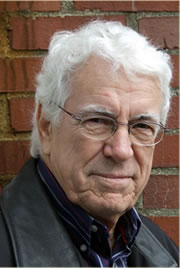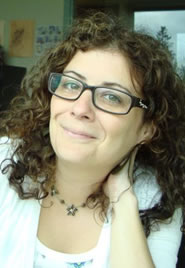Telling great green stories: An interview with Silver Donald Cameron

The Green Interview
Veteran journalist and writer Silver Donald Cameron (Don) is one of Canada's most versatile and experienced professional authors. His work includes plays, films, radio and TV scripts, corporate and governmental writing, hundreds of magazine articles and 17 books. In 2012 he was appointed to both the Order of Canada and the Order of Nova Scotia.
Don launched The Green Interview in 2010. It has become a rich repository for his dozens of interviews with global environmental and social justice thinkers and activists.
Recently, Land Lines Managing Editor Christine Beevis Trickett spoke to Don about The Green Interview, the individuals that inspire him, the importance of story and much more.

Silver Donald Cameron (Photo by The Green Interview)
CBT: Don, you’ve been fortunate to travel the world and speak to a wide range of inspiring thinkers and leaders. What led you to launch The Green Interview?
SDC: We are now dealing with a multifaceted environmental crisis. You can get terribly depressed when you realize just how bad it is. But I wanted to publicize the fact that a lot of great people are doing all kinds of exciting things to address it.
That is the purpose of The Green Interview, and being associated with some of the people who are at the leading edge of all that is really a great privilege.
CBT: Who are some of the people that inspire you?
SDC: I think of people like Hugo Spowers. He runs a little company in England called Riversimple. He was a racing car driver, he loves cars, and then he realized what cars were doing to the planet.
He decided that something had to be done about that, and he might as well do it. So he set out to reinvent the automobile. He’s developed a little two-seater that’s entirely recyclable at the end of its life and runs on hydrogen. He will not sell it to you — he will only lease it. He’s not here to sell millions of millions of cars — he’s out to provide different and better cars.
Well, I think that’s pretty wonderful.
I also met an Icelander by the name of Orri Vigfusson, who grew up in a fishing village where they fished herring mostly. The herring stocks collapsed and the village pretty much collapsed too. So Orri went off and became a businessman.
Later on, as a wealthy entrepreneur, he realized that the Atlantic salmon population was also in deep trouble. He knew where they spent their adult lives, and that’s off the west coast of Greenland. All the stocks on both sides of the Atlantic go to those same sea pastures, and fishermen pull them out there in unsustainable quantities. Orri decided that the solution was to eliminate the offshore salmon fishery by buying up every commercial fishing license in the North Atlantic and retiring all of them. We interviewed him about a year and a half ago, and he had got that about 85 percent completed.
You look at people like that and you think, wow, that’s an incredible change for just one person to make.
CBT: You’ve been lucky to spend a lot of time speaking to Canadians about the environment and sustainability. What issues do you think matter most to Canadians, when it comes to nature, the environment and sustainability?
SDC: We think of our land as being wild and pristine and vast and clean. But increasing numbers of Canadians have come to realize that this is not actually true, that it is increasingly less true. I think the realization is dawning on Canadians that even for us, in this vast landscape with enormous tracts of wilderness, even here we can have a permanent and really terrible impact on the landscape.
CBT: With 40 years of experience in writing and interviewing, do you have any tips for our bloggers and writers?
SDC: I would say that good writing is good writing, in any form. It's crisp and simple, and it's focused on story.
I think one of the big errors that people fall into is not realizing that they are telling stories. If they want to draw people's attention, they need to remember that they are storytellers and not lecturers. And the liveliest way to tell many stories is to find somebody whose activities reflect something you want to write about, and to let the larger issues unfold through th story of that one person or family who can tell that on-the-ground story.
Relying on story is very hard for people with scientific or academic training. Somehow you have to give yourself permission to write in a way that you know your professional colleagues would disapprove. But the test is not whether it receives the approval of your peers; the test is whether it moves people to action.
I dont think I have an enormous natural gift — but I have a passionate desire to write well, and I have 40 years of practice. That really helps.
My website, by the way, also provides resources for writers.
CBT: What has been your favourite Green Interview, and why?
SDC: It's hard to choose. Jane Goodall? Robert Bateman? George Monbiot, Vandana Shiva? The Prime Minister of Bhutan? I've enjoyed every one of the interviews, but in some ways, my favourite interview is always the next one. That's the one I'm always thinking about.
CBT: So what’s next?
SDC: We’re working on a documentary called "Green Rights," about the need to incorporate environmental rights in Canada's legal system. Most other countries have that, but we don't. We'ave already done the shooting in Ecuador and Argentina, and we still want to go to India, France and the Philippines. We'll do it the same way as Salmon Wars, our earlier film: raise the money, make the film, and give it away as a free download on the internet.
CBT: Thank you, Don!
The Green Interview now has 60 interviews on the site. Find out how you can subscribe and start viewing the interviews today.


